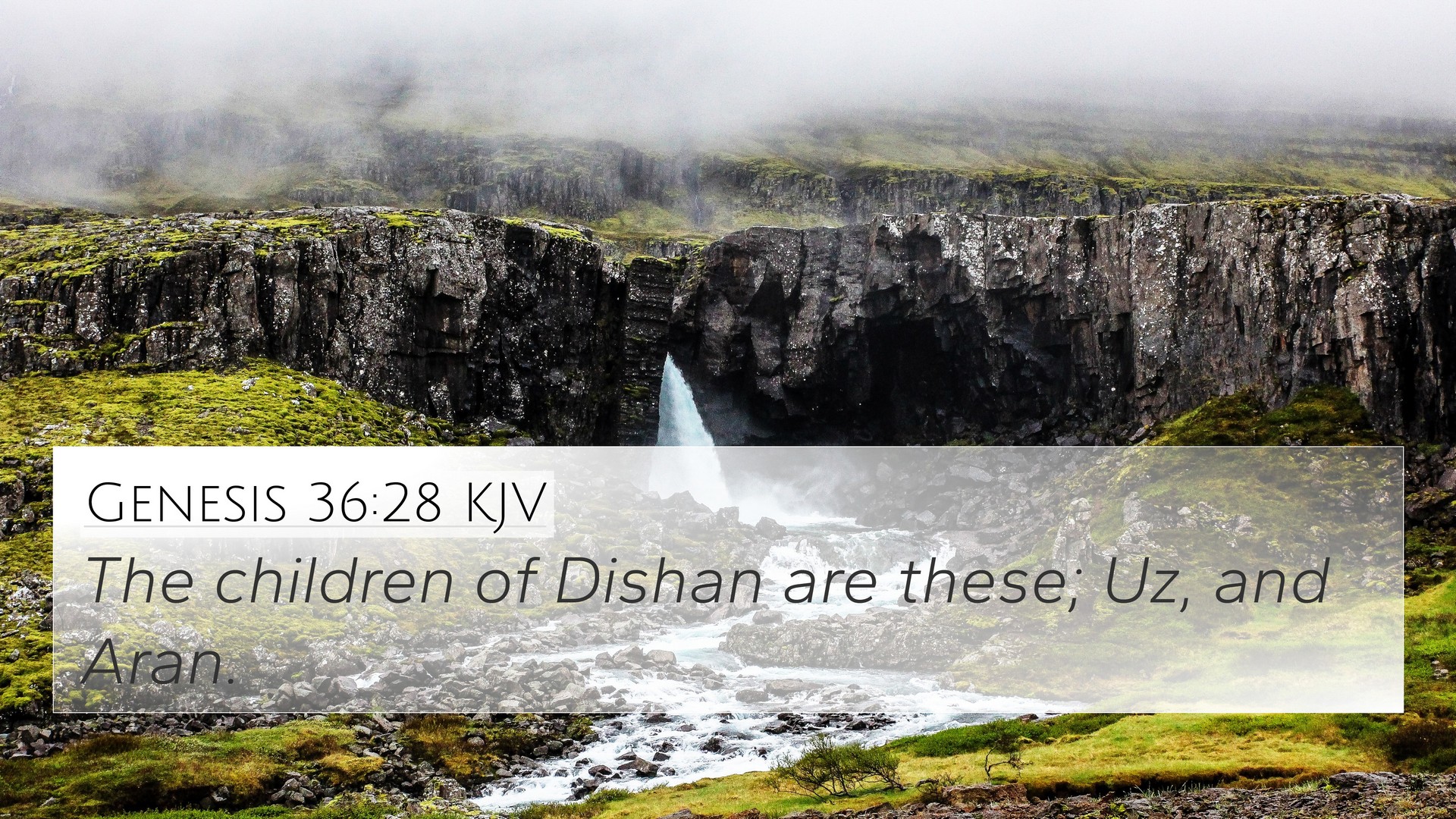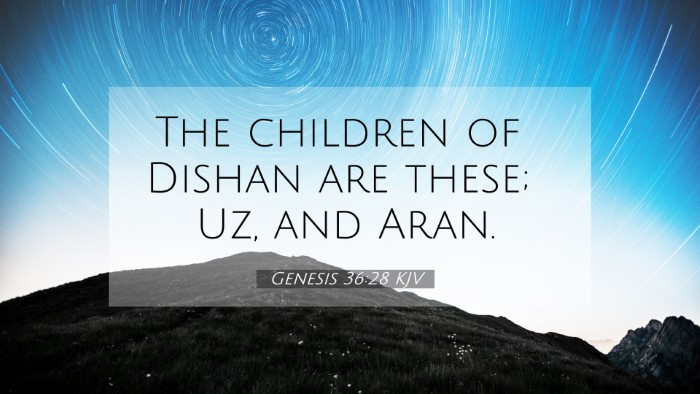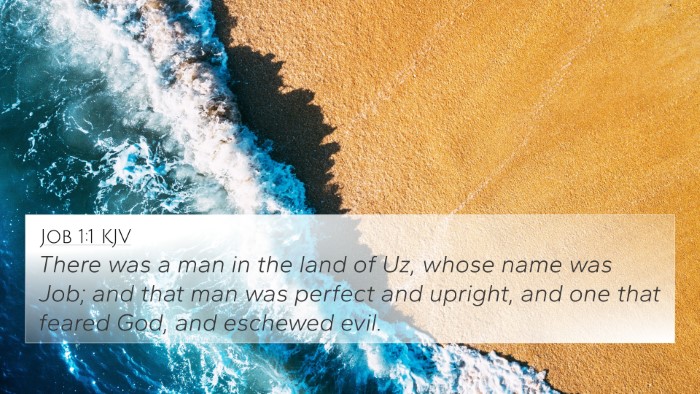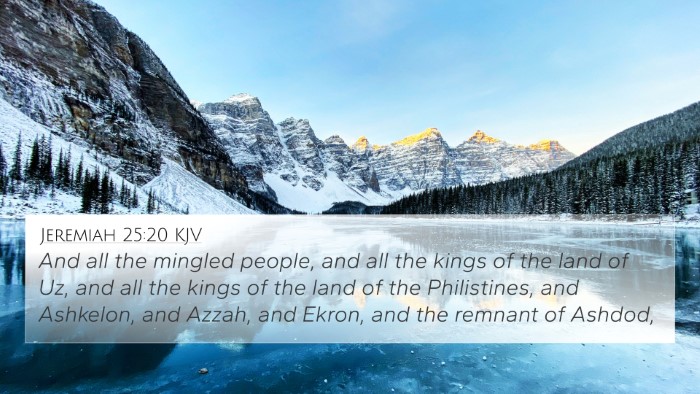Meaning and Interpretation of Genesis 36:28
Genesis 36:28 presents a brief but insightful glimpse into the lineage of Esau, specifically mentioning the sons of Dishan, including Uz and Aran. Understanding this verse requires us to explore its broader context within the biblical narrative.
Contextual Overview
This verse is part of the genealogy of Esau, which is presented in Genesis 36. Genealogies in the Bible often serve to establish important identities and lineage connections. Esau, the twin brother of Jacob, became the progenitor of the Edomites, and his lineage is crucial for understanding the historical and spiritual context of Israel and its neighbors.
Insights from Commentaries
-
Matthew Henry's Commentary:
Henry emphasizes the significance of divine providence in the unfolding of genealogies, showing that God's hand orchestrates the histories of nations, including the Edomites. He points out that these names, while sounding obscure, play a part in God's overarching plan.
-
Albert Barnes' Notes:
Barnes highlights the mention of Uz and Aran as indicative of the various tribes and nations that descended from Esau. He notes that the importance of these names extends beyond mere listing, as they are linked to historical territories and peoples in biblical narrative.
-
Adam Clarke's Commentary:
Clarke provides a lexicon-based examination of the names, suggesting that "Uz" can be linked to the land of Uz known for its wisdom, thus bringing forth thematic connections to the book of Job. He asserts that understanding these names helps unpack the larger story of the interactions between Israel and Edom.
Connections between Bible Verses
Genesis 36:28 has significant inter-Biblical connections, providing insights into both the Old and New Testament contexts. Below are some key cross-references:
- Genesis 25:30: This verse discusses Esau selling his birthright, establishing the narrative surrounding Esau's character.
- Genesis 36:1: The heading to the genealogy of Esau, which is essential for understanding the context of Genesis 36:28.
- Obadiah 1:18: This prophetic book addresses Edom's downfall, which is rooted in the legacy of Esau.
- Job 1:1: The land of Uz, relevant in the context of the descendants mentioned in Genesis 36:28.
- Deuteronomy 2:4-5: Instructions regarding the Edomites and their land, highlighting their importance among Israel's neighbors.
- Malachi 1:2-3: A divine declaration about God's love for Jacob and enmity toward Esau, which speaks to the ongoing theological implications of this lineage.
- Romans 9:13: Paul references God's choice regarding Esau and Jacob, illustrating the theological narrative initiated in Genesis.
Thematic Bible Verse Connections
This verse connects with several significant biblical themes:
- Divine Sovereignty: The genealogies reflect God's control over history, emphasizing how he chooses lineages for specific purposes.
- Identity and Heritage: The importance of understanding one's heritage as it relates to God’s promises and plans.
- Conflict and Relations: The ongoing tension between the descendants of Jacob and Esau mirrors spiritual and physical conflicts in later biblical narratives.
Comparative Bible Verse Analysis
By analyzing Genesis 36:28 alongside other verses, we can uncover deeper insights:
- The mention of Uz and Aran can be compared to Genesis 10:23, which also lists descendants and territories, showcasing the importance of family lineages throughout scripture.
- Cross-referencing with Isaiah 34:5-6 reveals the prophetic implications of Edom’s future and its relation to the descendants of Esau.
Tools for Bible Cross-Referencing
When studying verses such as Genesis 36:28, tools such as a Bible concordance or a cross-reference guide can be incredibly beneficial in exploring thematic connections and inter-Biblical dialogue.
Conclusion
Genesis 36:28 serves not only as a historical record of Esau's lineage but also invites readers to explore the intricate web of biblical genealogies and their theological significance. Understanding this verse enhances our grasp of God’s covenantal promises and the unfolding narrative of the Scriptures.





